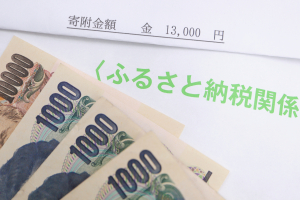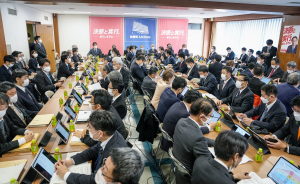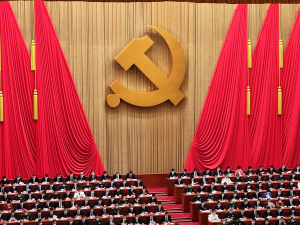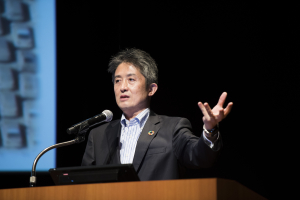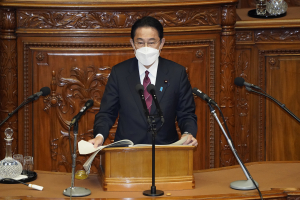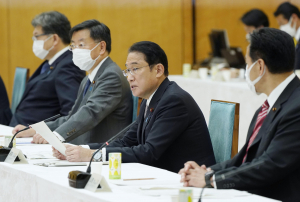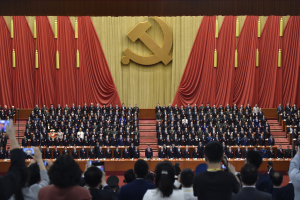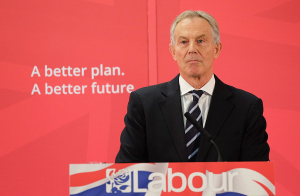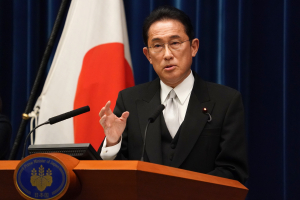
Will Fiscal Expansion Competition Advance Under a Minority Government?
February 19, 2025
R-2024-070E
Formation of a Minority Government
In the October House of Representatives election, the Liberal Democratic Party (LDP) and Komeito failed to secure a majority, leading to their status as a minority government. Unable to pass bills and budget proposals in the Lower House with just the votes from the two ruling parties, the LDP-Komeito administration is compelled to cooperate with major opposition parties, namely, the Constitutional Democratic Party, the Japan Innovation Party (Ishin), and the Democratic Party For the People (DPP).
Shigeru Ishiba’s administration initially expressed its intention to focus on cooperation with the DPP among the major opposition parties, but ultimately also collaborated with Ishin on the supplementary budget. Since both the DPP and Ishin have rejected forming a coalition with the LDP-Komeito government, cooperation occurs on a policy-by-policy basis. While broader policy coordination is expected to be pursued in the future, the attention thus far has centered on cooperation regarding expansionary fiscal policy, symbolized by the “¥1.03 million income wall.” The DPP reached a three-party agreement with the LDP and Komeito on comprehensive economic measures approved by the Cabinet on November 22, supporting the direction of reviewing the income wall and implementing gasoline tax cuts. Furthermore, on December 11, the secretary-generals of the three parties signed an agreement aligned with the DPP’s policy direction. Ishin agreed to support the supplementary budget proposal on the condition of establishing a framework for discussions with the ruling parties regarding “free education.”
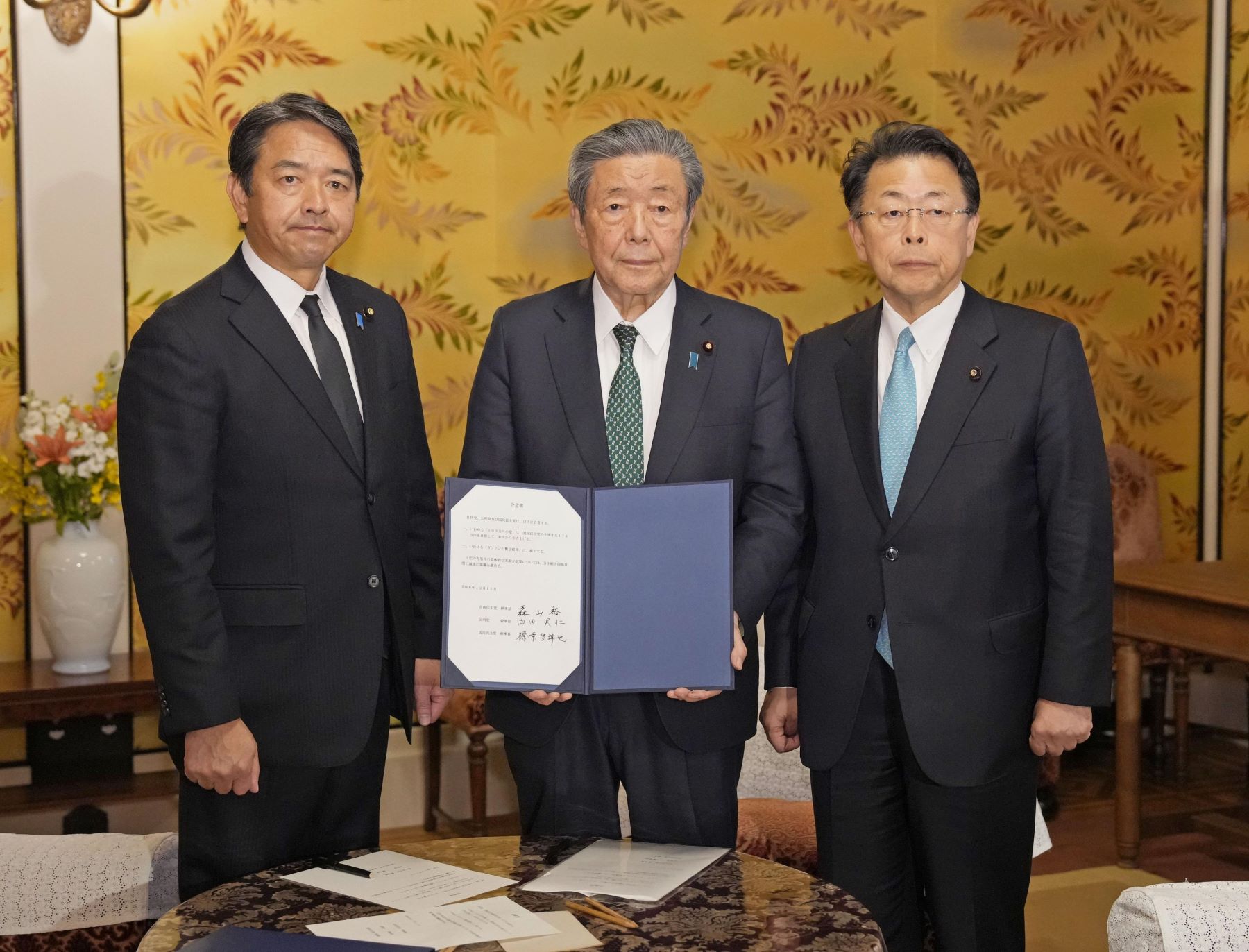
(Photo by Kyodo News)
(From left) The secretary-generals of the DPP (Shinba), the LDP (Moriyama), and Komeito (Nishida) pose for a photo after signing an agreement regarding the “¥1.03 million income wall” and other matters in the afternoon of December 11, 2024, at the Diet
Fiscal Expansion as a Valence Issue and the Giveaway Battle
In both the LDP presidential election in September and the Lower House election in October, virtually no parties or candidates openly opposed fiscal expansion or proposed fiscal consolidation measures. In this sense, expansionary fiscal economic policies appear to have now become what American political scientist Donald Stokes (1963) called a “valence issue” among Japanese parties.
A valence issue is one that enjoys broad consensus among most voters regarding their stance on a matter. A typical example, as Stokes himself noted, is political corruption and ethics. Generally, voters in every country, including Japan, share a consensus that political corruption needs to be addressed. Valence issues stand in contrast to “position issues,” which are characterized by sharp ideological divisions among voters. Examples of position issues include the constitutional (amendment) question in Japan, while in the United States, gun control and abortion rights serve as examples.
At first glance, valence issues may appear to facilitate political agreement and inter-party cooperation. In fact, parties and candidates seldom disagree on the necessity of measures aimed at valence issues. For example, when it comes to political ethics, which are typical valence issues, nearly all major parties or candidates in any country would acknowledge the need for measures to combat political corruption, since rejecting such measures would likely lead to a loss of voter support.
However, as noted in a previous Review article (Kato 2022), policy conflicts can still arise even over valence issues. A typical example occurs when parties compete to propose increasingly stronger measures to gain voter support. This leads to an escalation competition in which parties criticize each other’s proposals as “too soft” or “insufficient” while suggesting even stronger measures. In the context of expansionary fiscal economic policy, this is reflected in what the former Vice-Minister of Finance, Koji Yano (2021), called a “giveaway battle in public finance (baramaki gassen).” Regarding political ethics, the dynamics within the LDP and between ruling and opposition parties prompted by last year’s political funding scandal serve as an example.
When such escalation competitions arise over valence issues, the measures actually implemented often exceed appropriate levels. Escalation competition over fiscal expansion is particularly concerning for Japan, which has substantial public debt and faces a rapidly declining birthrate with an aging population.
Veto Players and Fiscal Expansion
The post-election party situation described at the outset may spur fiscal expansion. In the current situation, where the LDP-Komeito administration bases its policies on coordination with the DPP, the latter effectively wields veto power (Tsebelis 1995) over the ruling coalition’s budget and legislative proposals. Even when the ruling coalition seeks cooperation with other major opposition parties like Ishin, these parties also hold veto power.
Several studies have investigated the relationship between political veto players and fiscal policy. Empirical evidence indicates that political decentralization and an increase in veto players often undermine fiscal discipline and raise public debt (e.g. Crivelli et al., 2016; Hallerberg & Basinger, 1998). Related research on coalition governments and fiscal policy generally suggests that coalition governments tend to incur more public debt (e.g. Persson & Tabellini, 2003).
Indeed, since the Lower House election, the DPP has leveraged its veto power to push for expansionary fiscal policies from the ruling coalition, using the supplementary budget as a bargaining tool while appealing to public sentiment. Consequently, the DPP’s support rate has increased significantly.
Policy Directions
The transformation of expansionary fiscal economic policy into a valence issue, as observed in September’s LDP presidential election and October’s Lower House election, along with the rise of powerful veto players after the Lower House election, may further deteriorate Japan’s fiscal situation, as suggested by the theoretical and empirical research mentioned above. Signs of this are already apparent.
Of course, there are theoretical claims and arguments suggesting that fiscal deficits may be economically desirable under ultra-low interest rates[1]. While some political support for this view is understandable, the current Japanese political landscape, where expansionary fiscal policies seem to have become a valence issue among all major parties competing in the “giveaway battle,” appears excessive[2]. Although other advanced democracies are also experiencing rising public debt, France and Germany, for instance, experienced fierce partisan conflicts over fiscal consolidation measures recently, which shook their governments. The traditional clash between fiscal expansion and austerity remains a significant “position issue” in both countries.
In our research program on “Contingency Plans for a Potential Financial Crisis,” we are examining decision-making and consensus-building approaches during crisis precursors. Below, I will briefly outline two possible and broad directions that might mitigate an expansive fiscal tendency of the current political situation: one involves transforming valence issues into position issues, and the other is the possibility of a cross-party (bipartisan) agreement that encompasses veto players.
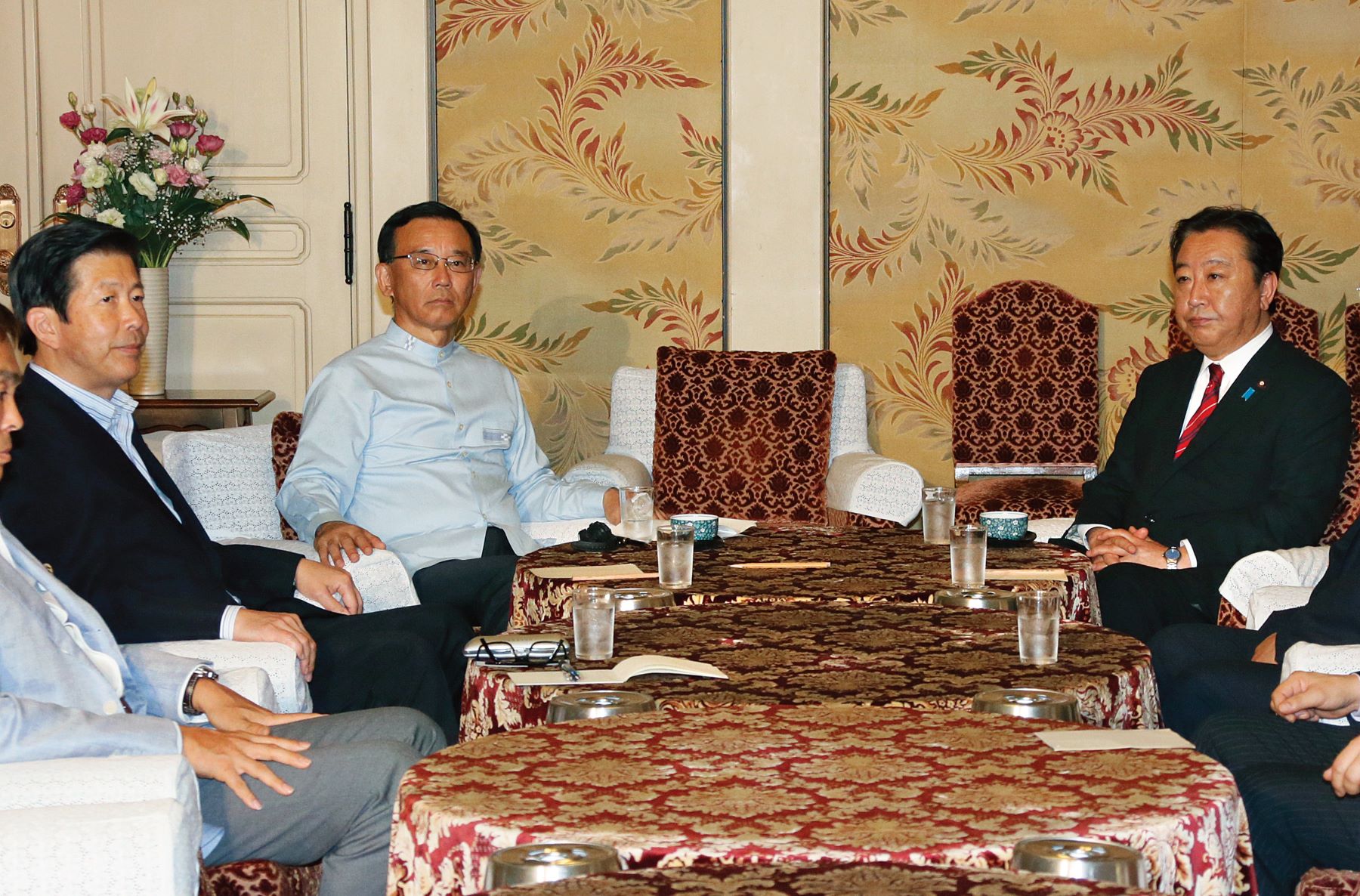
(Photo by Kyodo News)
(From right) Prime Minister Yoshihiko Noda, LDP President Sadakazu Tanigaki, and Komeito Chief Representative Natsuo Yamaguchi attending talks on the evening of August 8, 2012, at the Diet
Policy Direction 1: Bridging the Gap Between Major Parties and the Public
As mentioned earlier, judging by October’s Lower House election and subsequent political developments, there seems to be a consensus among major parties in Japan regarding fiscal expansion. While this has led to an escalation competition in fiscal expansion among the parties, it is questionable whether there is a true consensus among voters. In our 2022 survey conducted at the Tokyo Foundation, many voters expressed deep concern about Japan’s current fiscal situation and acknowledged the need for fiscal consolidation (Kato & Maeda 2023). In the survey, 40% of voters viewed the fiscal deficit as a “major problem,” while 25% considered it “somewhat of a problem,” suggesting that the general public does not agree with the current fiscal expansion policies that involve significant fiscal deficits.
One major factor contributing to the gap between voters and major parties regarding expansionary fiscal economic policies seems to be the nature of communication among the government, political parties, and the public on fiscal and social security issues. Since we have pursued separate research on this point, we will not delve into it in this article (for related policy recommendations, see Sato et al., 2023). However, by enhancing government-public communication methods, agenda-setting strategies, and policy tool combinations, expansionary fiscal economic policies could evolve into position issues. This might facilitate pragmatic policy debate between ruling and opposition parties, focusing on longer-term fiscal and social security arrangements with a vision for Japan’s future, rather than excessive escalation toward fiscal expansion (giveaway battles).
Policy Direction 2: The Need for and Nature of Inter-Party Agreement
For now, however, the prevailing consensus among major parties regarding expansionary fiscal policies is unlikely to shift. The emergence of strong veto players following October’s Lower House election has made the competition to propose expansionary fiscal policies more likely to heat up further. One-directional, runaway escalation of valence issues has been observed in many countries, not just Japan.
In the past, inter-party cooperation (consensus) or bipartisan efforts have been effective in keeping fiscal escalation competition at appropriate levels. Meanwhile, when a single party advocates for fiscal consolidation while an opposing party promotes expansion, it often escalates into fiscal expansion due to political pressure[3]. In the United States, for example, the Gramm-Rudman-Hollings Act, a bipartisan balanced budget law enacted during the Reagan administration, is well-known, and many bipartisan attempts to balance the budget have continued to this day. In the context of coalition governments, research has shown that the existence of inter-party agreements can, under certain conditions, counteract the effects of fiscal expansion by coalition governments (Back et al., 2017).
A rare example of cooperation between ruling and opposition parties concerning Japan’s fiscal and social security system is the three-party agreement on integrated social security and tax reform reached among the Democratic Party of Japan (DPJ), the LDP, and Komeito at the last stage of the DPJ administration in 2012. This agreement experienced various twists and turns, including multiple postponements of the consumption tax hike by the subsequent LDP administration. Many former DPJ members believe the agreement was effectively nullified by the LDP-Komeito administration. However, the fact that two consumption tax increases managed to be implemented under Prime Minister Shinzo Abe, who was said to have had strong opposition to the consumption tax and the Ministry of Finance, can be credited to this three-party agreement.
While we have discussed concerns about fiscal policy under the minority government that emerged from October’s Lower House election, the need for the ruling coalition to cooperate with major opposition parties could potentially be beneficial, helping to curb the fiscal expansion escalation competition through a new ruling-opposition party agreement. However, agreements with each single opposition party such as the DPP or Ishin will not halt the escalation. Similar to the 2012 three-party agreement, it will be essential to achieve a ruling-opposition party agreement on fiscal and social security issues that encompasses not just a few opposition parties but the majority of major opposition parties.
The 2012 three-party agreement was reached under a confluence of special circumstances that facilitated the ruling-opposition party agreement, including low approval ratings for the DPJ administration and fairly certain predictions of an LDP-Komeito return to power in the next election. While achieving a ruling-opposition party agreement involving all major opposition parties on fiscal and social security issues would not be easy under current conditions, such momentum might build as economic and fiscal conditions deteriorate and signs of crisis emerge. Strong will and leadership from party leaders will also be important.
To achieve agreement, efforts are needed now to establish common ground for discussion based on data and estimates organized and analyzed by researchers in third-party institutions trusted by the public, as well as establishing some degree of shared understanding between ruling and opposition parties regarding fiscal and social security sustainability. New mechanisms for ruling-opposition cooperation to replace the “kokutai-seiji” that developed under the 1955 System must also be fostered. Rather than competing in unsustainable fiscal expansion competitions, the proper form of democratic opposition should involve ruling and opposition parties competing vigorously with their wisdom about Japan’s future direction on a shared foundation (platform) established through factual-based agreement.
References
Back, H., W. C. Muller, and B. Nyblade, 2017. “Multiparty Government and Economic Policy-making.” Public Choice. 170(1-2). Pp. 33-62, Springer.
Blanchard, O., 2023. Fiscal Policy under Low Interest Rates. Cambridge, MA: MIT Press.
Crivelli E., S, Gupta, C. Mulas-Grandos, and C. Correa-Caro, 2016. “Fragmented Politics and Public Debt.” IMF Working Paper 16/190. International Monetary Fund (IMF).
Hallerberg, M. and S. Basinger, 1998. “Internationalization and Changes in Tax Policy in OECD Countries: The Importance of Domestic Veto Players.” Comparative Political Studies. 31: Pp.321-52.
Kato, Sota, 2022. “What We Need Is Not Consensus but Opposition: Public Opinion on Tax Increases and Fiscal Austerity.” Tokyo Foundation for Policy Research. Review. https://www.tkfd.or.jp/research/detail.php?id=3956 (in Japanese)
Kato, S. and Y. Maeda, 2023. “Economics Class: Perspectives on Fiscal and Social Security System Reform – Expenditure Cuts Before Consumption Tax Increase.” Nihon Keizai Shimbun, April 3. (in Japanese)
Persson, T. and Tabellini, G, 2003. The economic effect of constitutions. Cambridge, MA: MIT Press.
Sato, M., F. Ohtake, S. Kato, K. Kobayashi, and Y. Maeda, 2023. “Policy Recommendations (Research Program ‘Plans for Sustainable and Politically Acceptable Fiscal Consolidation and Social Insurance Reform from the Perspectives of Behavioral Economics and Political Science’).” Tokyo Foundation for Policy Research. Review. https://www.tkfd.or.jp/research/detail.php?id=4476 (in Japanese)
Stokes, D. E., 1963. “Spatial Models of Party Competition.” American Political Science Review 57-2. Pp. 372-373.
Tsebelis, G., 1995. “Decision Making in Political Systems: Veto Players in Presidentialism, Parliamentarism, Multicameralism, and Multipartyism.” British Journal of Political Science 25: Pp. 289-326.
Yano, Koji, 2021. “A Former Vice-Minister of Finance Speaks Out: National Finance Will Collapse at This Rate.” Bungeishunju, November issue. (in Japanese)
[1] MMT (Modern Monetary Theory), which does not consider fiscal deficits or public debt to be problematic, is well-known; however, more sophisticated discussions, including those by Blanchard (2023), have recently been advanced.
[2] In a survey of Japanese economists conducted by the Tokyo Foundation for Policy Research at the end of 2022, 44% responded that the fiscal deficit was a “serious problem,” and 42% said it was “somewhat of a problem” (Kato 2023). Meanwhile, only 6% said fiscal problems were “not much of a problem,” and 0.7% said they were “not a problem at all.” At present, MMT-style thinking does not appear to be supported by the majority of Japanese economists.
[3] While some argue that this situation represents a “prisoner’s dilemma,” the incentives for cooperation among players in valence issues heavily depend on political and economic conditions.


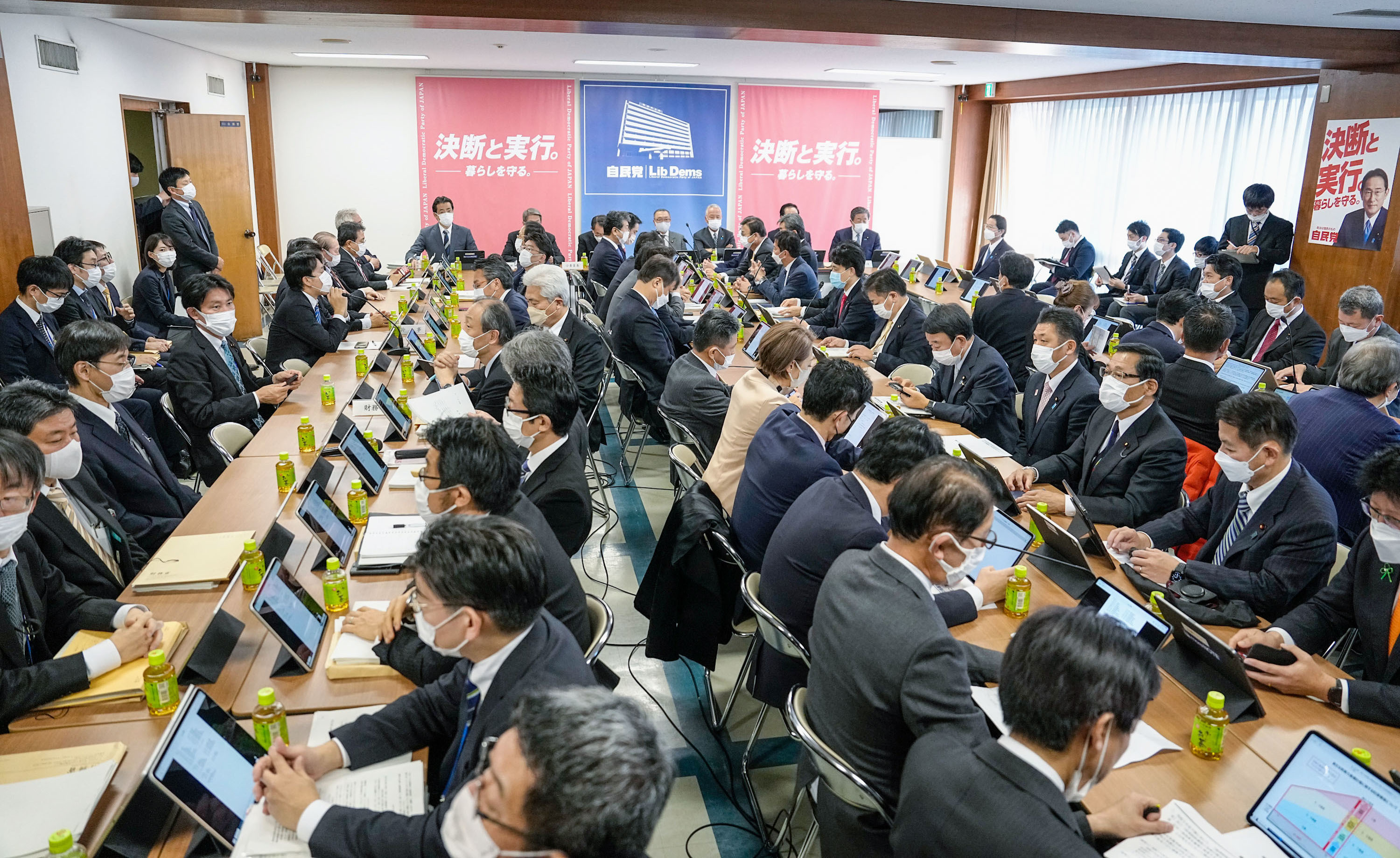

![[Policy Research] Water Minfra: A New Strategy for Water-Centric Social Infrastructure](/files_thumbnail/research_2023_Oki_PG_Mizuminhura_png_w300px_h180px.png)


